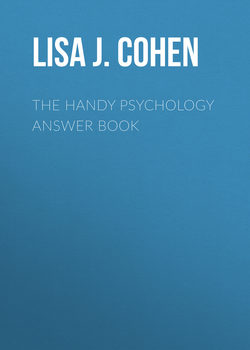Читать книгу The Handy Psychology Answer Book - Lisa J. Cohen - Страница 142
На сайте Литреса книга снята с продажи.
HUMANISTIC THEORIES What is humanistic psychology?
ОглавлениеHumanistic psychology refers to a group of psychological theories and practices that originated in the 1950s and became very popular in subsequent decades. Similar to the Gestalt psychologists, the humanistic psychologists reacted against the constraints of the dominant psychological schools of their time but the humanistic psychologists had better timing. They arrived on the scene just as the dominance of behaviorism and psychoanalysis was beginning to fade. In fairly short order, they became powerful counterpoints to the orthodoxies of both schools.
In general, humanistic psychologists wanted to inject humanity back into the study of human beings. More specifically, they objected to a mechanical view of psychology, to the portrayal of human beings as passive objects at the mercy of either stimulus-response chains or unconscious drives. They insisted that people are active participants in their own lives. Humanists emphasized free will and the importance of choice. They also valued the richness of subjective experience and concerned themselves with the qualities of lived experience, of human consciousness.
Finally, they challenged the emphasis on pathology in psychoanalysis. In contrast to Freud, they believed that people are inherently motivated toward psychological growth and will naturally move toward health with proper encouragement and support.
